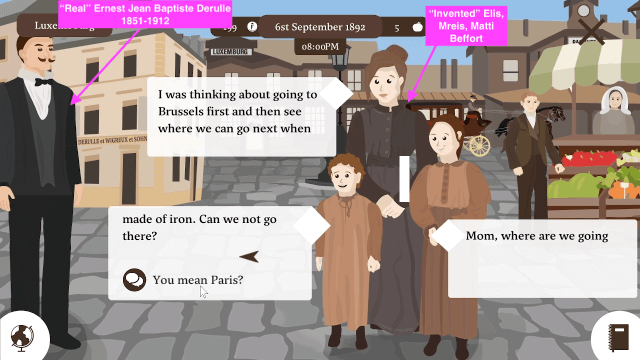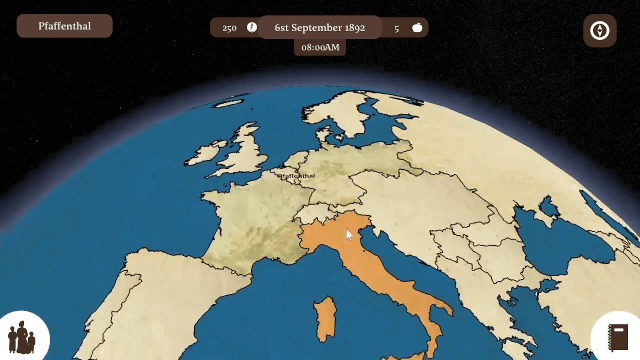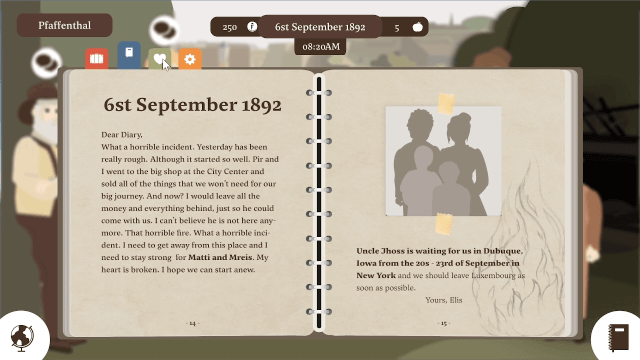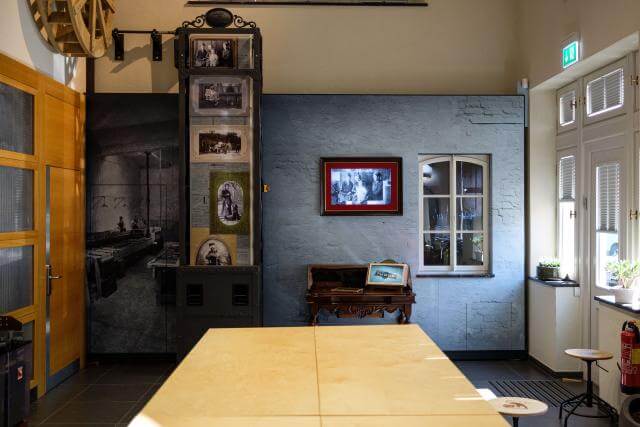University of Luxembourg
Designing a digital educational game about the migration of Luxembourgers to the United States in the 19th century. Marie-Paule Jungblut from the University of Luxembourg explains this project.

@Université du Luxembourg
-
Focus area Remembrance & Heritage
The project
When speaking with young people, I have noticed that they have considerable knowledge of the past. However, this knowledge is not based on school learning but rather on entertainment games. Conversations with teachers have revealed to me that many of them see a need to change their approach in teaching history in order to stimulate the curiosity of young people about the past. However, they reported a lack of appropriate tools to achieve this.
With the project "Migrants' Chronicles 1892" we aim to address this situation by developing a digital educational game on the migration of Luxembourgers to the United States in the 19th century. Intended to be used in schools and museums, the goal of the game is to transmit the memory of Luxembourgish emigration to young people aged 11 to 13 and to help them develop empathy for the situation of migrants today. The game model is not fixed, but can be adapted to a variety of content on other waves of historical and contemporary migration.

@Université du Luxembourg
Implementation
International studies have shown that playing games is associated with a range of cognitive, behavioral, emotional, and motivational effects and outcomes. However, the classical academic world in Luxembourg was reluctant to consider research in the field of digital games as "real" scientific research.
To introduce the Luxembourg scientific community to this field, we organized a study day at the University of Luxembourg in December 2021, where our partners from the Cologne Game Lab and Carleton College presented their research projects and engaged in discussions with Luxembourgish researchers.
Progress comes from curiosity, open-mindedness, and courage.
Marie-Paule Jungblut University of Luxembourg
Together with our scientific partners, the Cologne Game Lab research institute at the Technische Hochschule Köln and the Digital Humanities department at Carleton College in Northfield, USA, we have created a 15-minute prototype of the game.
On March 1, 2022, as part of the EdTech Event at the House of Startups, my colleague Mélanie Jung presented this prototype to peers and education professionals and won the award for best presentation. This reward gives us confidence that our game will be able to meet a real need for teachers.

@Université du Luxembourg
Objective
This game will allow students to actively take charge of their own learning and can also be used in a multidisciplinary education. The positive reactions to the prototype of our game confirm that the use of game technology in the field of education is a promising way to revive the teaching of history.
By exploring ways of collaboration between young university scholars in the humanities and young game designers, the project will be able to show future teachers the path to follow in using game technology for knowledge transfer.
But above all, this project aims to support the teaching of empathy, which has become a key concept in educational discourse.
The ultimate goal of teaching history should be the creation of a critical historical consciousness. To achieve this, we must think outside the box. We must no longer conceive the learning of history as a reproduction of standardized values, but we must give young people the opportunity to react to history in order to realize that there are multiple possible reactions. Instead of giving young people ready-made answers, we must encourage them to ask critical questions.
Progress comes from curiosity, open-mindedness, and courage. I wish for conventional institutions to be open to unconventional projects.

@Université du Luxembourg
Partager sur

